第61章 LIBERTY DAY--AND AFTER(8)
The sea was little encumbered with ice, it being now late in June, so that our progress was not at all impeded by the few soft, brashy floes that we encountered, none of them hard enough to do a ship's hull any damage.In most places the sea was sufficiently shallow to permit of our anchoring.For this purpose we used a large kedge, with stout hawser for cable, never furling all the sails in case of a strong breeze suddenly springing up, which would cause us to drag.This anchoring was very comfortable.Besides allowing us to get much more rest than when on other cruising-grounds, we were able to catch enormous quantities of fish, mostly salmon, of which there were no less than fourteen varieties.So plentiful were these splendid fish that we got quite critical in our appreciation of them, very soon finding that one kind, known as the "nerker," was far better flavoured than any of the others.But as the daintiest food palls the quickest, it was not long before we got tired of salmon, and wished most heartily for beef.
Much fun has been made of the discontent of sailors With food which is considered a luxury ashore, and wonder expressed that if, as we assert, the ordinary dietary of the seaman be so bad, he should be so ready to rebel when fed with delicacies.But in justice to the sailor, it ought to be remembered that the daintiest food may he rendered disgusting by bad cookery, such as is the rule on board merchant ships."God sends meat, but the devil sends cooks" is a proverb which originated on board ship, and no one who has ever served any time in a ship's forecastle would deny that it is abundantly justified.Besides which, even good food well cooked of one kind only, served many times in succession, becomes very trying, only the plainest foods, such as bread, rice, potatoes, etc., retaining their command of the appetite continually.
I remember once, when upon the Coromandel coast in a big Greenock ship, we found fowls very cheap.At Bimliapatam the captain bought two or three hundred, which, as we had no coops, were turned loose on deck.We had also at the same time prowling about the decks three goats, twenty pigs, and two big dogs.
Consequently the state of the ship was filthy, nor could all our efforts keep her clean.This farmyard condition of things was permitted to continue for about a week, when the officers got so tired of it, and the captain so annoyed at the frequent loss of fowls by their flying overboard, that the edict went forth to feed the foremast hands on poultry till further orders.Great was our delight at the news.Fowl for dinner represented to our imagination almost the apex of high living, only indulged in by such pampered children of fortune as the officers of ships or well-to-do people ashore.
When dinner-time arrived, we boys made haste to the galley with watering mouths, joyfully anticipating that rare delight of the sailor--a good "feed." The cook uncovered his coppers, plunged his tormentors therein, and produced such a succession of ugly corpses of fowls as I had never seen before.To each man a whole one was allotted, and we bore the steaming hecatomb into the forecastle.The boisterous merriment became hushed at our approach, and faces grew lengthy when the unwholesome aspect of the "treat" was revealed.Each man secured his bird, and commenced operations.But oh, the disappointment, and the bad words! What little flesh there was upon the framework of those unhappy fowls was like leather itself, and utterly flavourless.
It could not well have been otherwise.The feathers had been simply scalded off, the heads chopped off, and bodies split open to facilitate drawing (I am sure I wonder the cook took the trouble to do that much), and thus prepared they were cast into a cauldron of boiling salt water.There, with the water fiercely bubbling, they were kept for an hour and a half, then pitchforked out into the mess kid and set before us.We simply could not eat them; no one but a Noumean Kanaka could, for his teeth are equal to husking a cocoa-nut, or chopping off a piece of sugar-cane as thick as your wrist.